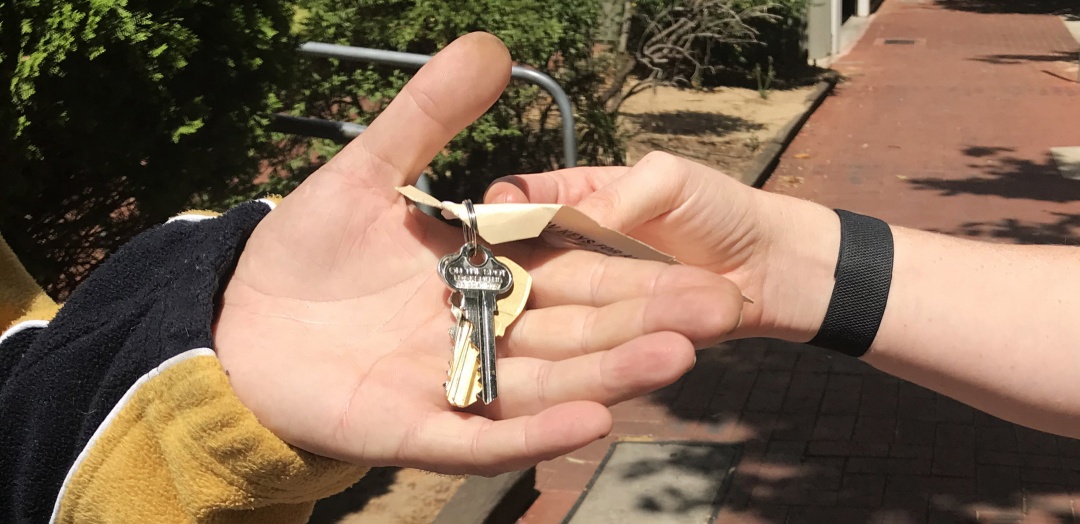Hutt St Centre’s Aspire program eases pressure on hospitals, saves the Government $32.7m

Hutt St Centre’s Aspire program, which helps South Australians experiencing persistent homelessness to find secure housing, is easing pressure on the state’s hospital system.
The results of the sixth year of operations show participants have avoided spending 6,091 nights in hospital across the length of Aspire, which corresponds to a 28 per cent reduction in hospital bed days relative to participants’ use prior to commencing the Aspire program.
The sixth-year results of the seven-year Aspire Social Impact Bond have shown that sustained support can significantly reduce participants’ use of government-funded services such as the health and justice systems and emergency accommodation – saving the South Australian Government $32.7 million in captured and future avoided services.
Hutt St Centre is seeking $15m in additional State Government funding for Aspire, to allow it to enrol an additional 600 people over the seven years following the end of the program in June this year. Without additional funding, the future of Aspire is unclear.
Forecasts show continuing the program would generate a further $35m savings for the State Government over its seven-year duration.
Hutt St Centre Chief Executive Chris Burns said the sixth-year results showed intensive case management, where Aspire workers spent significant time working alongside participants to find enduring solutions to their homelessness, alongside stable housing, was having a significant impact on not just people’s lives, but on service providers and the state’s health and justice systems.
Of the 575 people who have taken part in the program, 1,421 convictions have been avoided (a 35 per cent reduction relative to participants’ experience prior to the Aspire program), and 2,847 nights of accommodation have been saved (a 71 per cent reduction), because Aspire participants have been supported to reunite with their families, find and retain homes, connect with their local community and contribute back to society.
Over the six years of the program, 81 per cent of participants have been provided with housing, with 86 per cent of those maintaining their tenancies.
Of all the participants enrolled, 37 per cent have secured jobs, and 17 per cent have found volunteering roles, and others have commenced a course of qualification.
“Finding a home for the most vulnerable in our community provides greater stability for many, which means their health improves when they’re not out in the cold in winter and they have a safe place to return to at night. Aspire participants are less likely to have interactions with the health and justice systems, it’s easier for them to find a job, and the State Government no longer needs to support people to access emergency accommodation,” Mr Burns said.
“Through Aspire we are creating homefulness for hundreds of people and we are supporting them through a most challenging period of their lives.”
The Aspire Program is focused on supporting people experiencing persistent homelessness into housing and provides three years of individualised case management support.
Delivered by Hutt St Centre in partnership with the South Australian Government and community housing providers, the Aspire Program is funded through a Social Impact Bond (SIB) managed by Social Ventures Australia and represents a significant change in the way homelessness services are provided for complex clients.
The case management provided through Aspire augments the core work of Hutt St Centre as one of the few providers of primary specialist homelessness services for people at risk of or experiencing homelessness in South Australia. Those services address basic human needs and are fully funded by donations and the generosity of the South Australian community.
Stuart’s Story
Stuart joined the Aspire Program in 2020. He had been living in his car after an accident at his family home resulted in him having to leave and having nowhere to live.
Stuart’s physical and mental health suffered, including chronic back pain and daily panic attacks. He occasionally couch surfed, but usually only one night at a time.
After four months in Aspire, Stuart was offered a home by the South Australian Housing Authority (SAHA). He has lived there for more than two years – and he now has two cats - providing him with stability to connect with a financial counsellor, mental health support and a general practitioner who specialises in chronic pain management.
Throughout his time in the Aspire Program, Stuart has improved his relationships with friends and family. He meets with friends on a regular basis and has a relative who visits and stays with him overnight.
Stuart’s Aspire Case Navigator has been able to help Stuart advocate to his employment service provider about his physical and mental health which has resulted in the employment service provider adjusting his mutual obligations and gaining a better understanding of Stuart’s capabilities.
Stuart enjoys playing video games and has been able to turn this hobby into a way of earning additional income through video game streaming. This has provided him with a social outlet as he interacts with the many people who watch him play.

